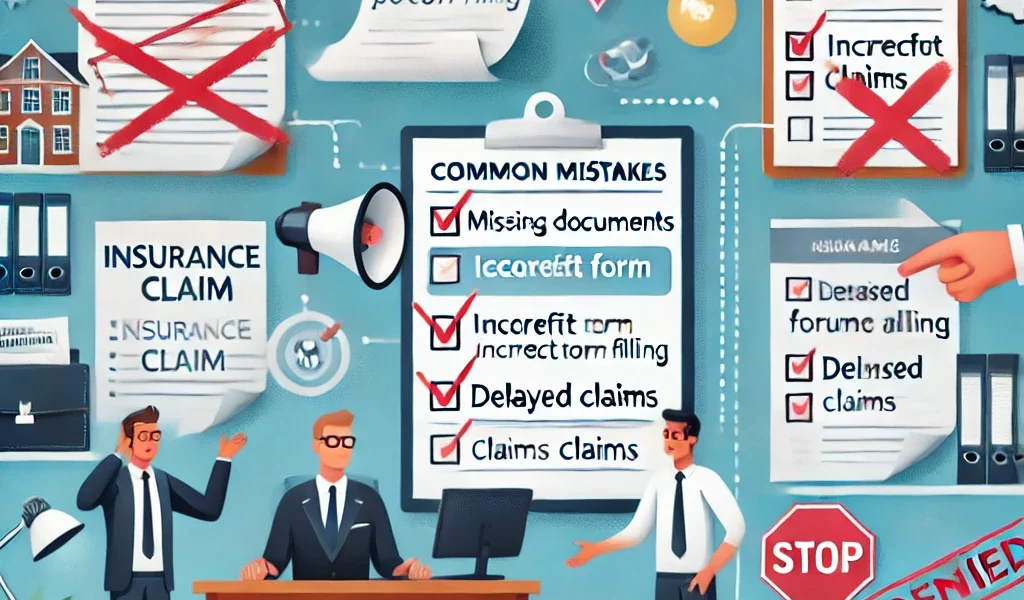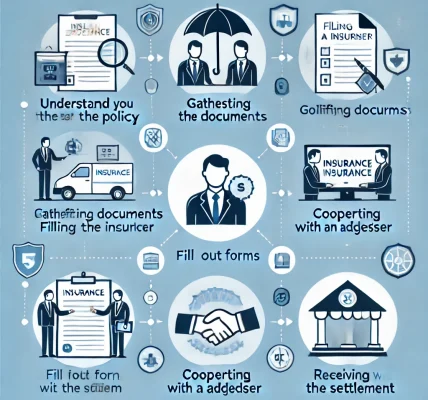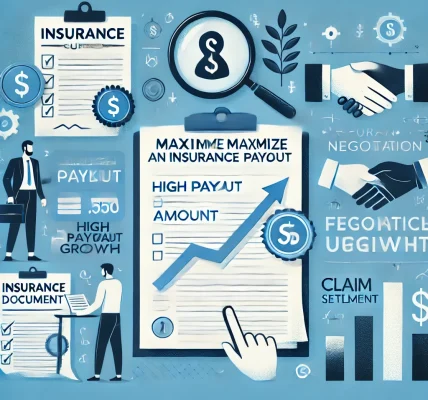Introduction
Filing an insurance claim can be a daunting process, especially if you are unfamiliar with the intricacies involved. A simple mistake can delay your claim, reduce your payout, or even lead to outright denial. By understanding and avoiding these common errors, you can ensure a smoother, faster, and more successful claims process. This guide outlines the most frequent mistakes people make when filing insurance claims and how to steer clear of them.
Mistake #1: Not Reviewing Your Policy Before Filing a Claim
One of the biggest mistakes policyholders make is failing to review their insurance policy before initiating a claim. Every insurance policy comes with specific coverage terms, exclusions, deductibles, and limits.
How to Avoid It:
- Read your policy thoroughly before filing a claim.
- Understand what is covered and what isn’t.
- Contact your insurance provider for clarification if you have any doubts.
Mistake #2: Delaying the Claim Process
Insurance companies typically require policyholders to report claims within a specific time frame. Delays can weaken your claim and, in some cases, lead to its rejection.
How to Avoid It:
- Notify your insurer immediately after an incident occurs.
- Check your policy for time limits on reporting claims.
- Keep all documentation handy to speed up the filing process.
Mistake #3: Failing to Document the Incident Properly
Insufficient documentation is one of the primary reasons for claim denials. Whether it’s an auto accident, home damage, or medical emergency, having detailed evidence is crucial.
How to Avoid It:
- Take clear photographs and videos of the damage or accident scene.
- Obtain police reports, medical records, and witness statements when applicable.
- Keep all receipts and invoices related to the claim.
Mistake #4: Providing Incomplete or Inaccurate Information
Incorrect or missing information can delay processing or result in claim rejection. Some people unintentionally omit details, while others exaggerate claims, which can lead to fraud accusations.
How to Avoid It:
- Be honest and precise while filling out claim forms.
- Double-check all information before submission.
- If you’re unsure about certain details, consult your insurer before finalizing the claim.
Mistake #5: Not Following Up on Your Claim
Many policyholders assume that once they submit a claim, they can sit back and wait for approval. However, insurance companies may require additional documents or clarifications.
How to Avoid It:
- Regularly check the status of your claim.
- Respond promptly to requests for additional information.
- Maintain a record of all communications with your insurer.
Mistake #6: Accepting the First Settlement Offer Without Review
Insurance companies may offer a quick settlement that is lower than what you deserve. Accepting it without negotiation can result in financial loss.
How to Avoid It:
- Review the settlement offer carefully.
- Compare it with repair estimates or medical bills.
- If necessary, negotiate or seek a second opinion from an independent adjuster.
Mistake #7: Signing a Settlement Agreement Too Quickly
Once you sign a settlement agreement, you waive your right to dispute the amount later. Many claimants make this mistake without understanding the long-term implications.
How to Avoid It:
- Read the agreement carefully before signing.
- Seek legal or professional advice if you have concerns.
- Ensure all expenses related to the claim are covered before accepting the offer.
Mistake #8: Overlooking Exclusions and Deductibles
Many policyholders assume they are covered for every possible scenario, only to find out later that certain events are excluded from their policy.
How to Avoid It:
- Familiarize yourself with policy exclusions and limitations.
- Calculate your deductible before filing a claim to understand out-of-pocket costs.
- Consider policy upgrades if necessary to ensure broader coverage.
Mistake #9: Filing Too Many Claims
Filing multiple small claims within a short period can raise red flags with insurers and may lead to higher premiums or even policy cancellation.
How to Avoid It:
- Consider whether it’s worth filing a claim for minor damages.
- Weigh the potential premium increase against the claim payout.
- Maintain an emergency fund for small repairs to avoid unnecessary claims.
Mistake #10: Assuming All Insurance Companies Operate the Same Way
Each insurance provider has different claim procedures, timelines, and requirements. What worked for one insurer may not work for another.
How to Avoid It:
- Read your specific insurer’s claim guidelines.
- Ask questions if any part of the process is unclear.
- Stay informed about industry changes that might affect your claim.
Final Thoughts
Filing an insurance claim can be a complex process, but avoiding these common mistakes can significantly improve your chances of a smooth and successful experience. Being proactive, organized, and well-informed will not only help you receive a fair settlement but also protect you from unnecessary stress and financial losses. If you ever feel uncertain, consult a professional to ensure you handle your claim correctly and maximize your benefits.




